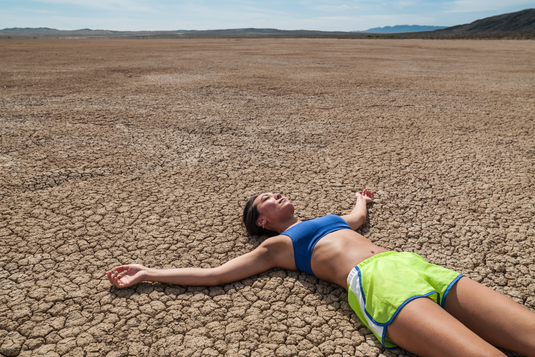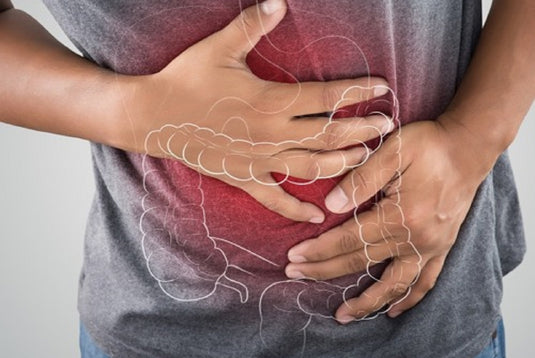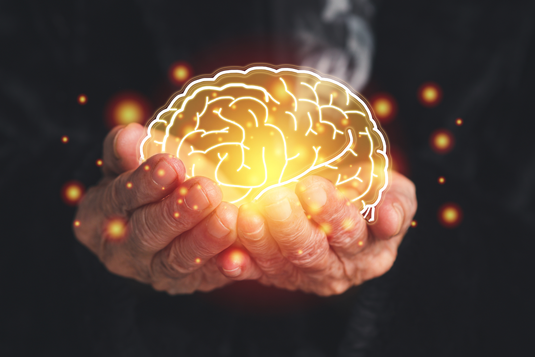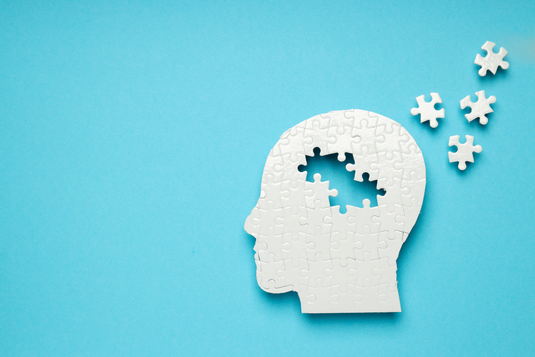No matter how popular and famous the diets, cleanses and detoxes we undertake, we must pay serious attention to the possible side effects that may not be entirely beneficial, and in some cases, even harmful. Liver cleanses are a great example of this: they are supposed to be good for the liver. That sounds a little weird, doesn't it? When you undertake a liver cleanse, you would naturally think that it is good for the liver?! It's normal to think that once the term "liver" is used, it automatically means it's safe for the organ. The truth is, it doesn't have to! Behind the name "cleansing the liver" there is much more. When undertaking such a cleanse, you need to take care not only of the liver and its needs, but also of another critical part of the body: the adrenal glands.
Story by Anthony William
In this excerpt from his book Liver Help , Anthony William tells the following story:
"I remember once watching a friend weed his garden. As I sat nearby, he complained to me that for the past month he had been so busy that he had not been able to take care of his yard. Weeds were everywhere. On his knees, he rooted out the noxious plants, moving closer and closer to the pepper beds he had planted. In the fertilized soil around them, the weeds seemed especially thick and strong. My friend tackled a huge donkey thistle.
"Are you sure you want to rip it out?" I asked him. "What if you cut it off at the base instead so you don't harm the soil around the peppers? After all, they're the ones that win you awards at the farmers market every year?"
"Yes," replied my friend, "I won three years in a row. But I have to remove this thistle because otherwise it will deprive the peppers of nutrients."
So he pulled and pulled and pulled while I sat and laughed. He seemed to try to be as careful as possible at first, though he quickly grew nervous and angry. Finally, he harnessed all his strength and uprooted the thistles with one mighty pull—but that wasn't all he uprooted. Along with the donkey's thistle, a number of pepper plants were now uprooted in the garden bed, along with thistles and lots of soil. My friend immediately took care of his favorite plants. He carefully transplanted them and did his best to correct his mistake, watering them carefully, feeding them with his own mysterious potions of nutrients, as well as some new ones he had never tried before. Despite all the extra precautions, he knew in his heart that he had made the wrong decision in messing with the donkey's thistle. Some of the peppers he had uprooted were permanently damaged.
The peppers in question took a whole month to recover, and my friend never really recovered. Although the peppers eventually turned red and he was able to use them in the kitchen and add them to salads, they never reached the required size—too small to enter the annual farmers market competition. People would ask him what had happened, and he would tell them that he had to leave the garden for a while to attend to some other work. The next time I saw him, he said, "I should have just cut the thistles to the base, added rich compost around the peppers, and gone with the plan. I would have had the peppers I wanted, and maybe better."
The role of the adrenal glands in cleansing
When we try to clear the poisons from the liver and we cleanse too quickly, trying to get rid of everything at once, we are like trying to eradicate too much. Many of the cleanses we can come across create a storm in the liver – they also affect our emotional center, creating a frenzied fixation that drives us to frantically cleanse our liver to extremes. In this process of over-cleansing, it is our adrenal glands that take the brunt.
That's right – the adrenal glands are like the peppers in the story from a while back in that they generate some serious heat. Have you ever gone outside in the cold without a jacket? You start to wiggle your toes or run in place and that helps because it gets your adrenals working. When you move your muscles, these heat-producing glands send adrenaline into your body to make you feel nice and warm. It is a misconception that only increased circulation is what warms you when you move. In fact, the warming effect is due to the adrenaline that (1) gets your heart pumping to start pumping faster so that (2) your blood carries that extra adrenaline faster, which provides that warming effect. Just as we have to be careful not to overdo it with some hot pepper varieties that generate a lot of heat units, so we have to be careful with our adrenal glands. We have to be gentle with them.
With improper cleansing, not only the liver is overburdened, but also the adrenal glands can suffer. To begin with, they should already be stressed and weakened. People with health problems usually have adrenal glands that are compromised and not functioning at their best. Many experience recurring bouts of adrenal fatigue or persistent, chronic adrenal fatigue. When you cleanse the liver, the adrenal glands have a responsibility that no one knows about - to combine the toxic materials released by the liver with enough adrenaline to create a surge that acts as a clearing mechanism. This means that for every one part of poison that the liver detoxifies, the adrenal glands must send out two parts of adrenaline. This is a more liver-friendly type of adrenaline than the corrosive one, although it too has its effect on this important organ. Medical research and science still cannot measure the amount of toxins released by the liver at any given time, especially during a cleanse, nor are they even aware of this connection between poisons and adrenaline.
When cleansing occurs smoothly, the least necessary amount of adrenaline is used because toxins are released properly and evenly without triggering alarms in the body. On the other hand, when the liver is forced to cleanse faster than it should, as poisons flood the bloodstream, alarm signals go off throughout the body.
The liver itself also sends a warning. Imagine that you are tasked with rolling rocks from the top of a hill. The foreman forces you to pick up a rock that is too heavy and your first instinct is to try to hold it as it is very difficult to maneuver. You can't handle it for long and you feel that he is slipping away from you. The stone starts rolling down the hill, off the road, directly towards a colleague of yours. What are you doing? You start yelling at him: "Get out of the way!". So does your liver, when it is forced to release poisons in too large quantities and at too fast a rate, it sends chemical compounds to alert the central nervous system that detoxification is imminent.
The nervous system immediately alerts the adrenal glands to save the day by releasing adrenaline to protect the body at that moment. In this case, adrenaline acts as a steroid compound to stop the body from reacting to any poisons as quickly as possible. It's still released at a ratio of two parts adrenaline to one part poison - which adds up to two parts adrenaline a lot if there's a lot of poison parts. In many cases, this rush of adrenaline can lead to a feeling of euphoria. A cleansing intoxication occurs, and for those with a strong nervous system and healthier liver and adrenal glands, the euphoric intoxication can last for days and even weeks, preventing them from experiencing the disadvantages of this process.
In many cases, when someone is on an extreme diet and begins to feel ill, it will be explained to them that this is a healing reaction. While it is true that under the right circumstances we can have natural detoxification reactions, if it is a raw cleanse, this reaction is not healing - it is a sign of too many poisons flooding the body at once. When the liver releases large, excessive levels of poisons because someone is taking modern detox tips that are not aimed at helping the body in the right way, the adrenal glands will continue to pump out these two parts of adrenaline to match the toxins. For a person with weakened adrenal glands, this is extra work that the glands do not need. The opposite of euphoria can occur, with many moments of lows as the liver eventually reabsorbs most of the poisons. For a person with a sensitive nervous system, this is no good either – the adrenaline itself, although it is there to stop the damage, will over time start to damage the central nervous system. You may even experience symptoms such as shaking, light tremors, pain or dizziness.
(This connection between adrenaline and the nervous system is a connection that medical studies and science have discovered only at a superficial level. For example, for people who have Parkinson's disease, doctors do not recommend the use of epinephrine auto-injectors unless the injection is truly critical to saving lives because they have seen Parkinson's get worse with epinephrine. Well, that's because Parkinson's is a neurological disease, and epinephrine [another word for adrenaline] is hard on the nervous system. The relationship between adrenaline and the nervous system is and the reason people with any nervous system symptoms or conditions or just sensitive nerves don't do well under pressure or stress, their nerves are so sensitive to adrenaline that these people can't keep their composure and presence of the spirit.)
When you undertake a cleanse, it must be balanced. You will feel both bursts of energy and moments of exhaustion, but everything should be in moderation and within reason. Everyone has different health issues and responds differently to a cleanse. What no one wants is a radical cleanse that leaves you completely sick and feeling worse than when you started. These cases have become more frequent in the last decade. While your body is recovering from an extreme cleanse, you may feel like you've healed, but in reality, the body is recovering from the cleanse itself. It's just trying to get back to where you were before you started the extreme cleanse.
A quick recovery is expected from any cleanse. When the liver is forced to do this at high speed, the adrenal glands weaken faster, making recovery more difficult. The weaker the adrenal glands, the longer it will take. As adrenaline rushes through the body to deal with the toxins the liver has been forced to release, normal sleep can also be disrupted, further stressing the adrenal glands. During an extreme cleanse, people often sleep less than usual because they are overexcited by adrenaline. After that, they often sleep more because the adrenal glands need to recover.
We need to protect our adrenal glands. No two are the same - not even in the same body. It's easy to think they're identical, and they may look that way, but in reality, at the micro level, each is unique in shape and size. Just as peppers growing on the same stalk have different shapes and shades of color, hotness and number of seeds, so the two adrenal glands are always slightly different. We may examine thousands of adrenal glands, and in no body are the two of equal strength. One is always weaker than the other – or, if you prefer to put it another way – one is always stronger than the other. We point this out because it's important to know that when you're doing a cleanse—and whatever it is, the liver will be involved—the weaker adrenal gland will have to work even harder to produce the necessary amount of adrenaline. In fact, whatever we do, the weaker gland will have to work a little harder. That's why it's even more important to take care of your pair of glands. How to do this, as well as further details, you will find in Anthony William's book Help for the Liver .








